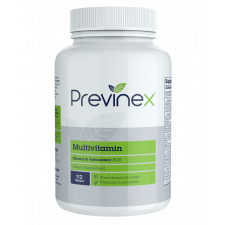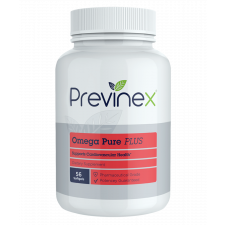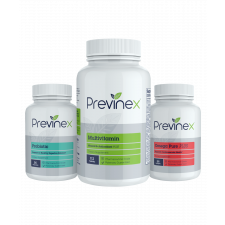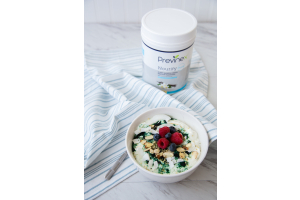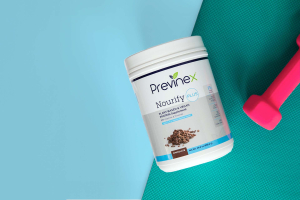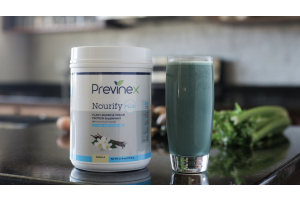
We know, “multivitamin” can feel like a buzzword. But really, multivitamins are a great way to help your body supplement some nutritional value it may be lacking. So let’s break down what exactly multivitamins are, how they can benefit your health, and answer some common questions:
Multivitamins Are Micronutrients
As we learn more about nutrition, there’s been an increased focus on the importance of macronutrients—aka carbohydrates, fats, and proteins that help give our bodies energy. But that’s not all our bodies need to survive and thrive—we also need micronutrients. These are the essential vitamins and minerals our bodies require to function well, keeping us healthy and happy. While it’s important to do our best to get micronutrients from our food, our bodies tend to still fall short of those nutrients.
Enter: multivitamins. These are supplements that contain these essential micronutrients to give our systems a boost where we’re not getting the necessary amount from our food.
Vitamins and Minerals
Though the phrase “vitamins and minerals” is common, most people don’t know the difference between the two.
Vitamins are organic compounds— they’re derived from plants or animals. You probably know vitamins by their letters: vitamins A, C, D, E, K, and all the various B vitamins. Minerals, on the other hand, are inorganic compounds—they are not derived from living things, but instead from the earth (typically soil). The essential minerals for us are calcium, phosphorus, potassium, sodium, chloride, magnesium, iron, zinc, iodine, sulfur, cobalt, copper, fluoride, manganese, and selenium. (Try saying that list five times fast).
Benefits of Multivitamins
Immune System
For starters, vitamins and minerals play a huge role in supporting and maintaining a healthy immune system. To do this, they produce and support healthy immune cells, strengthening those cell's membranes. Vitamins and minerals also help produce new blood cells and antibodies. They suppress the body’s inflammatory response and promote antibody response, which helps your body heal. They also act as antioxidants, cutting down on the damage caused by viruses and other nasty particles like carcinogens and allergens.
Cardiovascular
Our heart and blood health also depend on these vitamins and minerals. They increase energy in our cardiac muscle tissue and help our bodies maintain healthy blood flow—specifically through the heart. These vitamins and minerals also help protect our bodies from heart attacks.
Micronutrients promote healthy blood pressure by keeping our veins and arteries healthy and by improving our blood vessel linings. They also help our blood cholesterol levels stay healthy by decreasing LDL (“bad”) cholesterol and increasing HDL (“good”) cholesterol, and they prevent cholesterol from accumulating in our arteries and liver.
Simply put, micronutrients, along with vitamins and minerals benefit our cardiovascular system and decrease the risk of cardiovascular disease.
Brain and Nervous System
While it’s not talked about a lot, micronutrients definitely improve our brain and nervous system function. They increase levels of blood DHA and EPA—these are just essential omega 3 fatty acids—which can improve our cognitive function. Vitamins and minerals also help our bodies regulate memory and mood. Micronutrients, vitamins, and minerals are also essential for neuromuscular contraction (aka the way we move). All these benefits help keep our brains and nerves functioning properly!
Digestive System
Poor gut health is, unfortunately, a common issue in our society. So it makes sense that our gut health is affected by the micronutrients we ingest. Vitamins and minerals work together to help remove waste and toxins from the body. They also help metabolize fat in the liver, which ultimately produces energy for our cells and bodies. Additionally, the antioxidant power of these micronutrients helps to fight against the oxidative stress caused by detoxification. Basically, good gut health depends heavily on vitamins and minerals.
Bone Health
Micronutrients also play an important role in bone health. They improve the body’s ability to regulate and absorb calcium and phosphorus—both of which improve bone strength. Though bone density naturally decreases over time, micronutrients help keep our bones as dense as possible for as long as possible.
Eye Health
There are a few vitamins and minerals that play a role in our eye health, like lutein and zeaxanthin. They protect our eyes from damaging UV rays and help our eyesight overall. They keep our eyes from getting damaged or too dry. They also support healthy ocular blood vessels (which basically just means they make sure our eyes are getting enough blood). All in all, micronutrients help support and maintain long-term eye health and vision, and can help our vision last longer.
Skin, Hair, and Nails
Our skin, hair and nails also benefit from micronutrients! Even though our bodies (obviously) naturally age over time, many factors such as sunlight, pollution, and stress can cause us to age sooner. Certain vitamins and minerals can protect our skin cells and slow the aging process a bit. They also help produce collagen and promote stronger, thicker nail growth. So basically, having beautiful and healthy skin, hair, and nails is made possible by getting our micronutrients from the inside out.
Metabolic System
As if all this weren’t enough, micronutrients also help our metabolism and energy levels. They help the body convert carbs, proteins, and fats into energy, and they increase the body’s ability to recover from injury. They help us maintain healthy blood sugar levels, which helps keep us at a healthy weight and sustain our energy throughout the day. Vitamins and minerals also keep our organs functioning properly, and help regulate our hormones.
FAQs
What Does a Multivitamin Do For Your Body?
It’s well studied and understood that vitamins and minerals are essential for proper body function. However, studies on multivitamin supplements have varied results, and are difficult to conduct since supplements are not regulated by the FDA. If a multivitamin has high quality ingredients and appropriate amounts of vitamins and minerals, it is more likely to get the benefits of micronutrients.
If I Eat Healthy, Do I Still Need a Multivitamin?
The short answer: yes. The perfect diet is one that incorporates all the essential macronutrients and micronutrients, but eating ALL the necessary vitamins and minerals you need daily is near impossible. Not to mention, certain produce becomes limited season to season, there’s a decrease in produce nutrient density, the amount and type of nutrients you need increase when you exercise and, of course, the throws of daily life can make it difficult to cook every meal from scratch, much less calculate the micronutrients.
Taking a daily multivitamin is a great way to make sure you’re getting all the essential vitamins and minerals you need!
Should I Take a Multivitamin Everyday?
If you’ve determined you’d like to take a multivitamin supplement to get all those micronutrients, it’s best to take them as recommended on the bottle. Most multivitamin supplements have a measured daily value of each micronutrient and are designed to be taken daily. Taking a multivitamin at the same time every day is also a great way to settle into a routine, which will make it easier to stick to that healthy habit. The Previnex Multivitamin, Mineral, & Multi Health PLUS is a great option if you’re looking to get started with a high-quality multivitamin!
Do Multivitamins Have Side Effects?
Taking a daily multivitamin is unlikely to have side effects in most healthy people. Some people have reported upset stomach, nausea, and diarrhea or constipation from taking multivitamins, though these side effects are rare. That being said, there are a few precautions to consider:
- If you’re taking a multivitamin, you don’t need to be eating fortified foods and beverages. (“Fortified” simply means that extra vitamins and minerals have been added to the food.) If you’re taking a good multivitamin, it will contain all of the vitamins and minerals you need, so you don’t need to double up!
- Whatever our bodies don’t need is filtered and deposited through our kidneys. This includes the vitamins and minerals our bodies don’t absorb. So it’s important to have good renal (kidney) function when you’re taking any supplement or medication. If you struggle with healthy kidney function, speak with a doctor before starting a multivitamin supplement.
- A few studies have shown that those who smoke should avoid multivitamins with more than 100% of the Daily Value (DV) of Vitamin A—there’s a possible increased risk of lung cancer. Taking more than 100% DV of Vitamin A (from retinol only) is also not advisable during pregnancy—it has been shown to increase the risk of birth defects.
- Certain blood thinners (such as Warfarin) should not be taken with Vitamin K, as it can decrease the effectiveness of the medication. If you take a blood thinner, be sure to speak with your doctor before taking a multivitamin supplement.
Which Multivitamin Brand is Best?
Multivitamins are the most frequently used supplements in America and are taken by almost half of all adults, so there’s a large market for these products. Knowing what brand is best can be difficult! Fortunately, there are a few guidelines to follow to make this decision a little easier:
- First and foremost, a multivitamin should have a comprehensive range of all essential vitamins and minerals. You can easily check this by looking at the nutrient information on the bottle and compare it to the list of essential vitamins and minerals.
- Another metric is quality. Micronutrients can be derived from different sources, and some of these sources have far more bioavailability than others. (Bioavailability is important because it measures how easily and efficiently the vitamin or mineral is absorbed by the body). Unfortunately, many multivitamin companies choose the cheapest source—rather than the best—for vitamins and minerals, and often these cheap sources have low bioavailability, making the multivitamin far less effective and in some cases not effective at all.
Quality can be difficult to determine, but a small amount of research goes a long way. Companies should be transparent about their nutrient sources and the clinical effectiveness of each nutrient. When you select a multivitamin, you want to choose one with the highest quality and most clinically effective forms of each ingredient. Here at Previnex, we have a Multivitamin with the highest, most clinically effective ingredients. Get yours today to start feeding your body those yummy micro and macronutrients.

